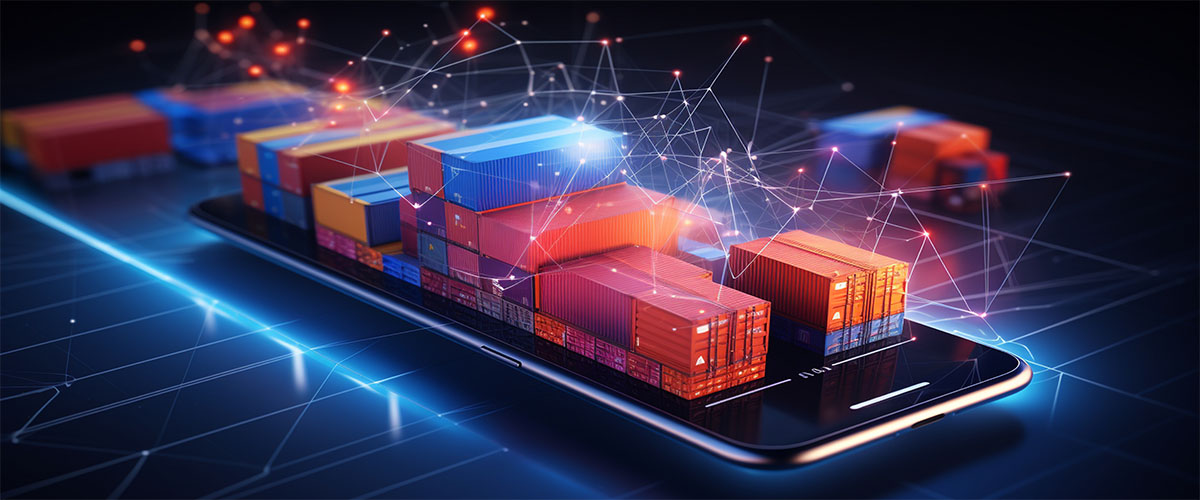How can Generative AI Optimize Supply Chain Processes

In the dynamic realm of supply chain management, the integration of artificial intelligence (AI) has been pivotal for enhancing efficiency, improving demand forecasting, and optimizing operations. With projections indicating significant investment growth, global generative AI supply chain investment is expected to reach $13 billion by 2032, representing a remarkable increase from $301 million in 2022. Amidst the challenges posed by the global pandemic, corporations persisted in advancing AI-driven supply chain initiatives toward operationalization. However, a disruptive force emerged, reshaping our understanding of AI’s capabilities — generative AI, propelled into the limelight by innovations like ChatGPT.
Today, where agility and adaptability are essential, traditional supply chain methodologies often need to address the complexities and uncertainties inherent in modern operations. This is where generative AI emerges as a transformative tool, offering novel approaches to streamline processes, elevate decision-making, and drive optimization across the supply chain spectrum.
Let’s explore how generative AI revolutionizes supply chain processes, opening new avenues for businesses to excel in an era of constant change and evolving consumer expectations.
Generative AI in a Supply Chain
Generative AI stands as a pioneering force in revolutionizing supply chain management, leveraging its unique capabilities to revolutionize traditional methodologies. But what exactly is generative AI in the context of supply chains?
It undergoes training on extensive volumes of supply chain-related data in the supply chain domain, encompassing logistics information, sales history, inventory records, and more. Subsequently, it harnesses this wealth of data to produce various insights tailored to optimize various facets of the supply chain operation.
What sets generative AI apart from traditional AI in supply chain applications?
Conventional AI methods typically utilize statistical models and historical data analysis. Techniques like time series analysis, regression models, and machine learning algorithms are employed to discern patterns and correlations in historical data. Predictions are made based on identified trends, seasonality, and other data-driven factors. While these methods are adept at capturing long-term trends and patterns, they often struggle to adapt to abrupt changes or consider external factors not explicitly represented in the historical data. Moreover, they require substantial amounts of accurate historical data for precise forecasting.
Generative AI, however, adopts a different approach. Rather than solely depending on historical data, it creates new data that mirror the training dataset. Generative AI algorithms, such as GANs or Variational Autoencoders (VAEs), learn the underlying patterns and characteristics of the data, utilizing this understanding to generate new data points.
It possesses an advantage in handling situations where there is a lack of sufficient historical data. In such cases, generative AI can generate artificial data points to supplement the existing dataset. This capability is especially valuable when dealing with new products or markets with limited or no historical data.
Accelerate Actionable Customer Insights Using ML and Generative AI
How Generative AI Shaping the Future of Supply Chain Management
In supply chain management, businesses navigate a complex operations landscape, from procurement and production to distribution and inventory management. Yet, amid these complexities, challenges inevitably arise, requiring innovative solutions to drive efficiency and optimize processes.
It emerges as a transformative force, reshaping the future of supply chain management by addressing these challenges head-on.
Let’s delve into how generative AI revolutionizes supply chain operations, bringing significant improvements and paving the way for a more agile and responsive supply chain ecosystem.
- Precision Demand Forecasting: In demand forecasting, generative AI stands out for its ability to analyze vast datasets from diverse sources, including historical sales data, market trends, and additional external factors like weather patterns and social media sentiment. This comprehensive analysis enables more accurate demand forecasting, reducing the likelihood of overstocking or understocking products and ensuring optimal inventory levels.
- Optimized Inventory Management: Generative AI’s prowess in demand forecasting translates into optimized inventory management practices. Providing precise demand forecasts helps businesses streamline inventory levels, predict when and where inventory needs replenishment, and ultimately reduce carrying costs while ensuring product availability. This proactive approach to inventory management enhances operational efficiency and improves overall supply chain performance.
- Proactive Supplier Relations: Gen AI empowers businesses to proactively manage supplier relationships by analyzing supplier performance data and predicting potential issues such as delivery delays or quality concerns. By proactively detecting and resolving these concerns, businesses can foster healthier supplier relationships, minimize disruptions, and guarantee a smooth flow of goods across the supply chain network.
- Dynamic Transportation and Logistics: In the realm of transportation and logistics, generative AI optimizes routes and schedules in real-time, considering various factors such as traffic conditions, weather forecasts, and fuel costs. This dynamic optimization results in cost savings and ensures more reliable deliveries, enhancing customer satisfaction and loyalty.
- Resilient Risk Management: Gen AI plays a crucial role in risk management by continuously monitoring various risk factors and providing early warnings about potential disruptions. By leveraging advanced analytics and predictive capabilities, generative AI enables businesses to implement proactive contingency plans, alleviate risks and reduce the impact of unforeseen events on supply chain operations.
How Ellicium Can Help You
Generative AI holds the promise of continuous learning and evolution. At Ellicium, we offer free consulting to understand your business challenges and explore tailored applications of Generative AI. Whether you have a defined use case or need assistance in discovering potential areas for optimization, our experts seamlessly implement Proof of Concepts (POCs) to demonstrate tangible benefits within your specific context.
Whether you want to enhance supply chain management, streamline operations, or improve decision-making processes, Ellicium’s tailored strategies and AI models are designed to meet your unique business needs. Contact us today to embark on your journey towards enhanced efficiency and business excellence.